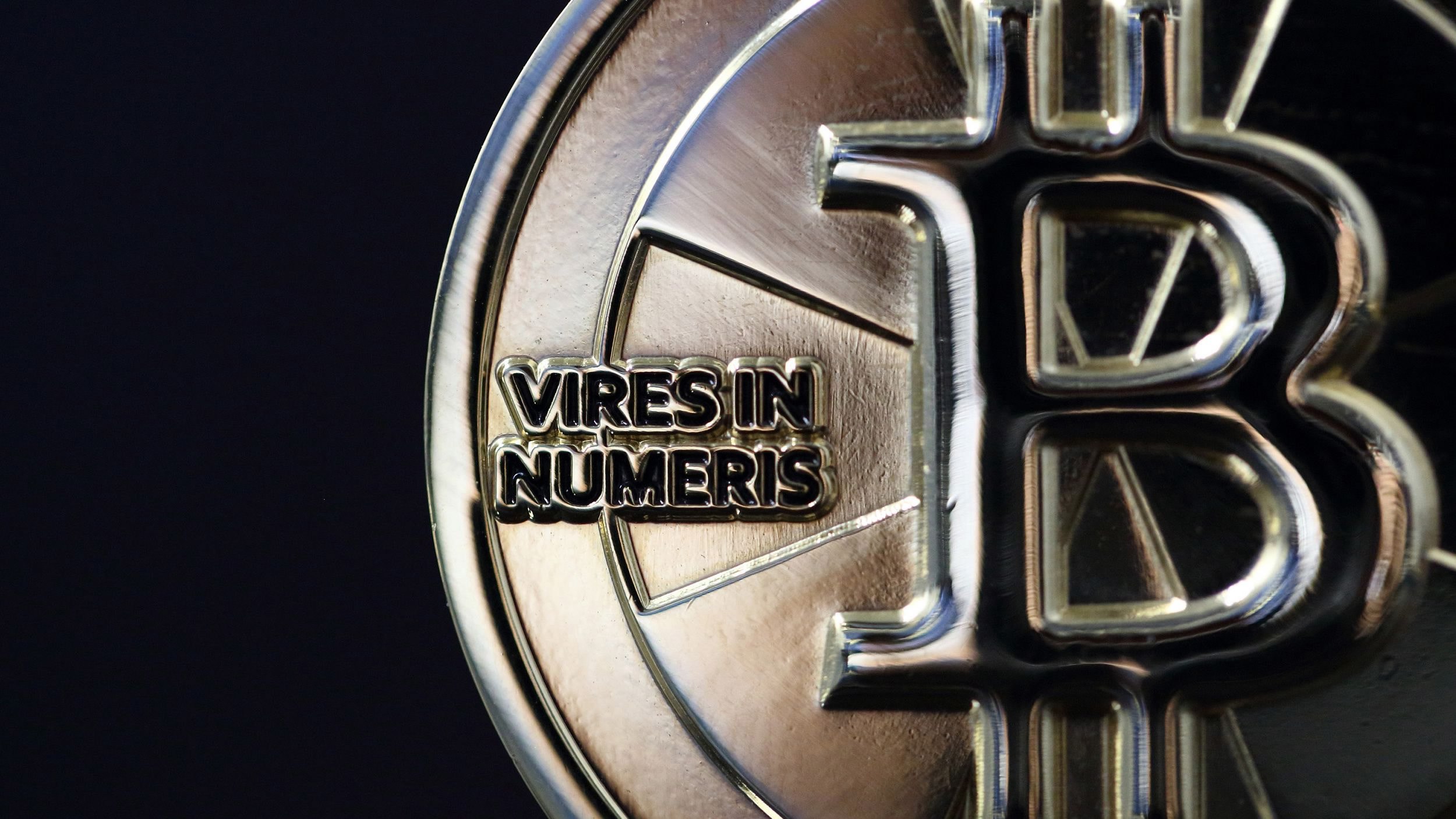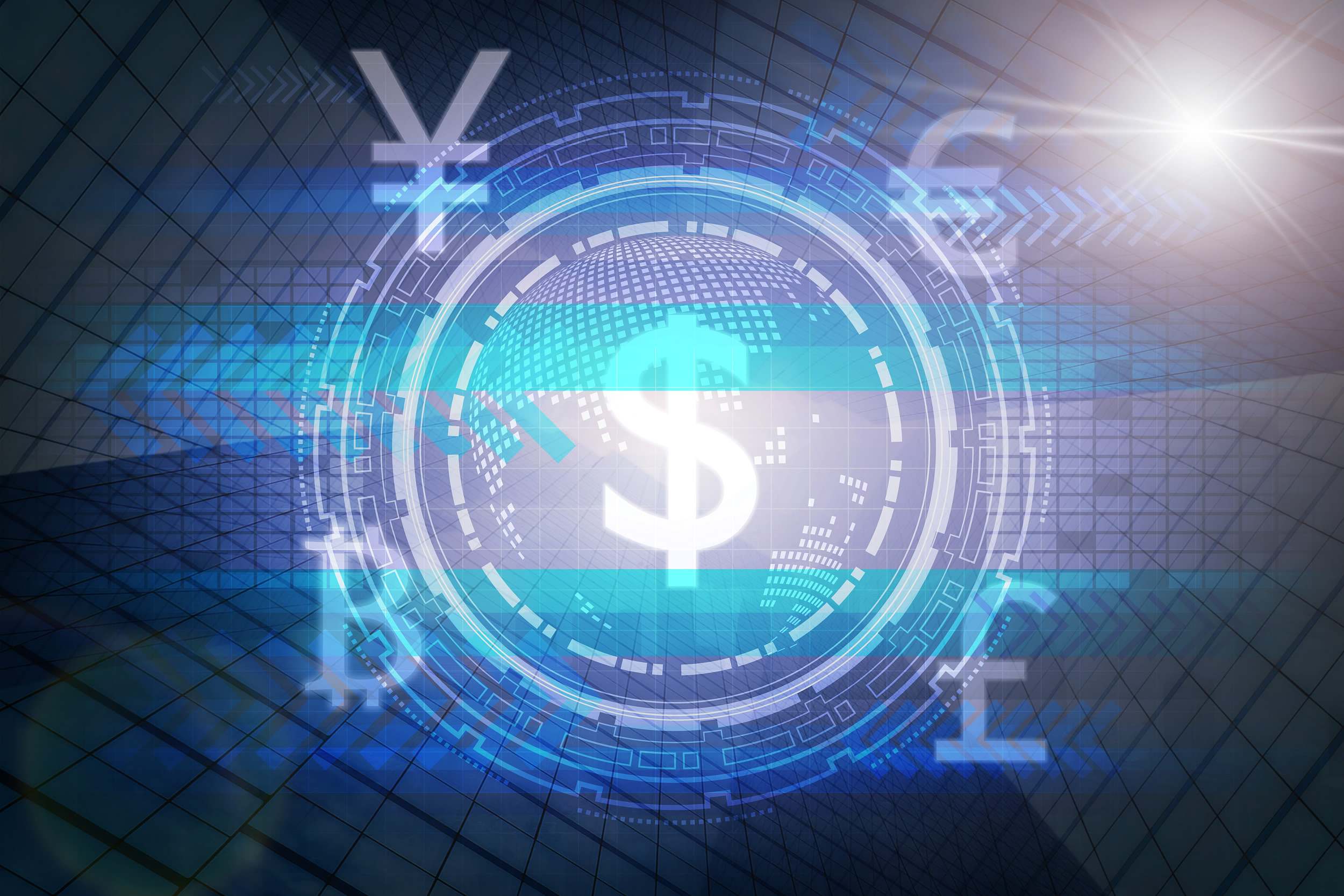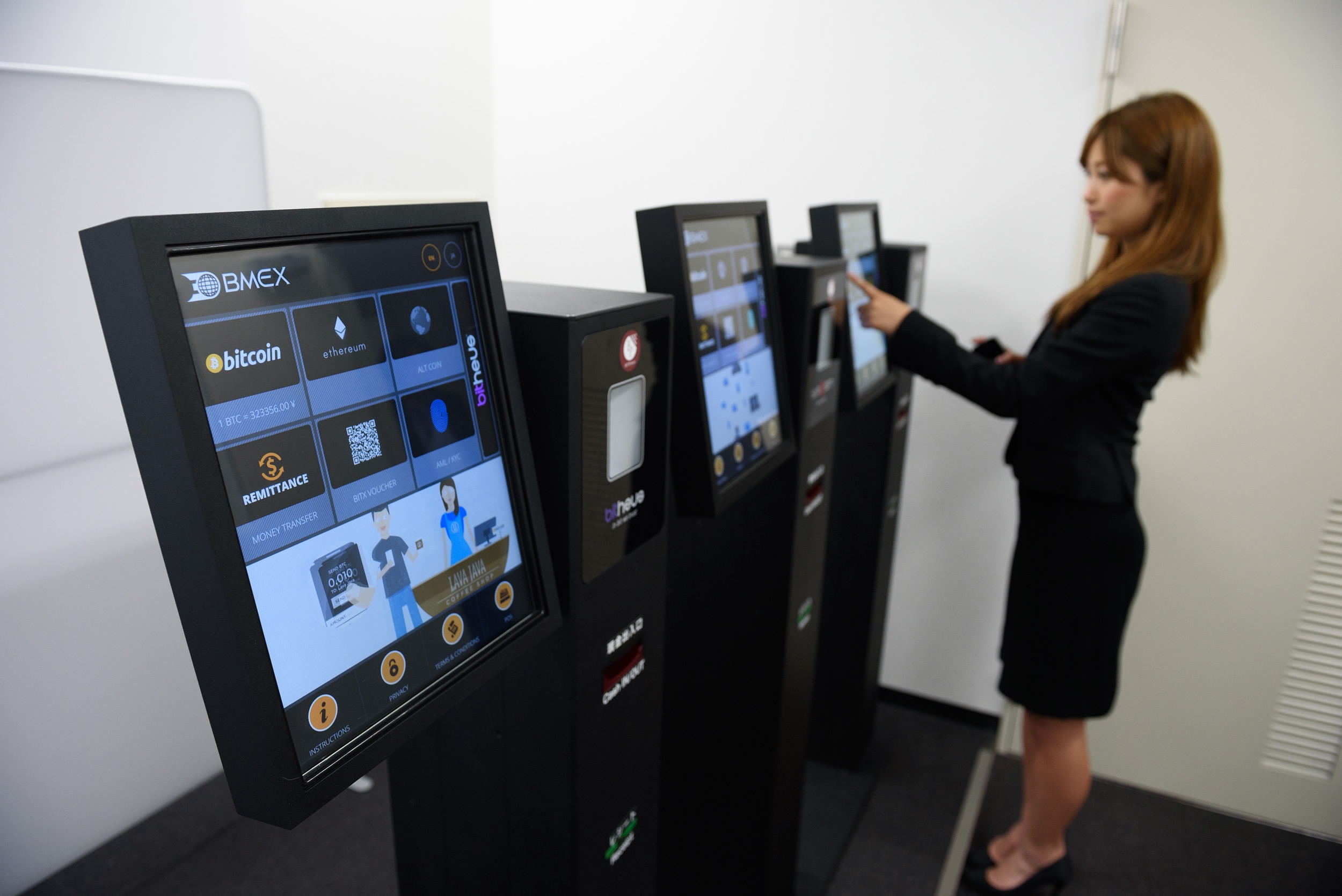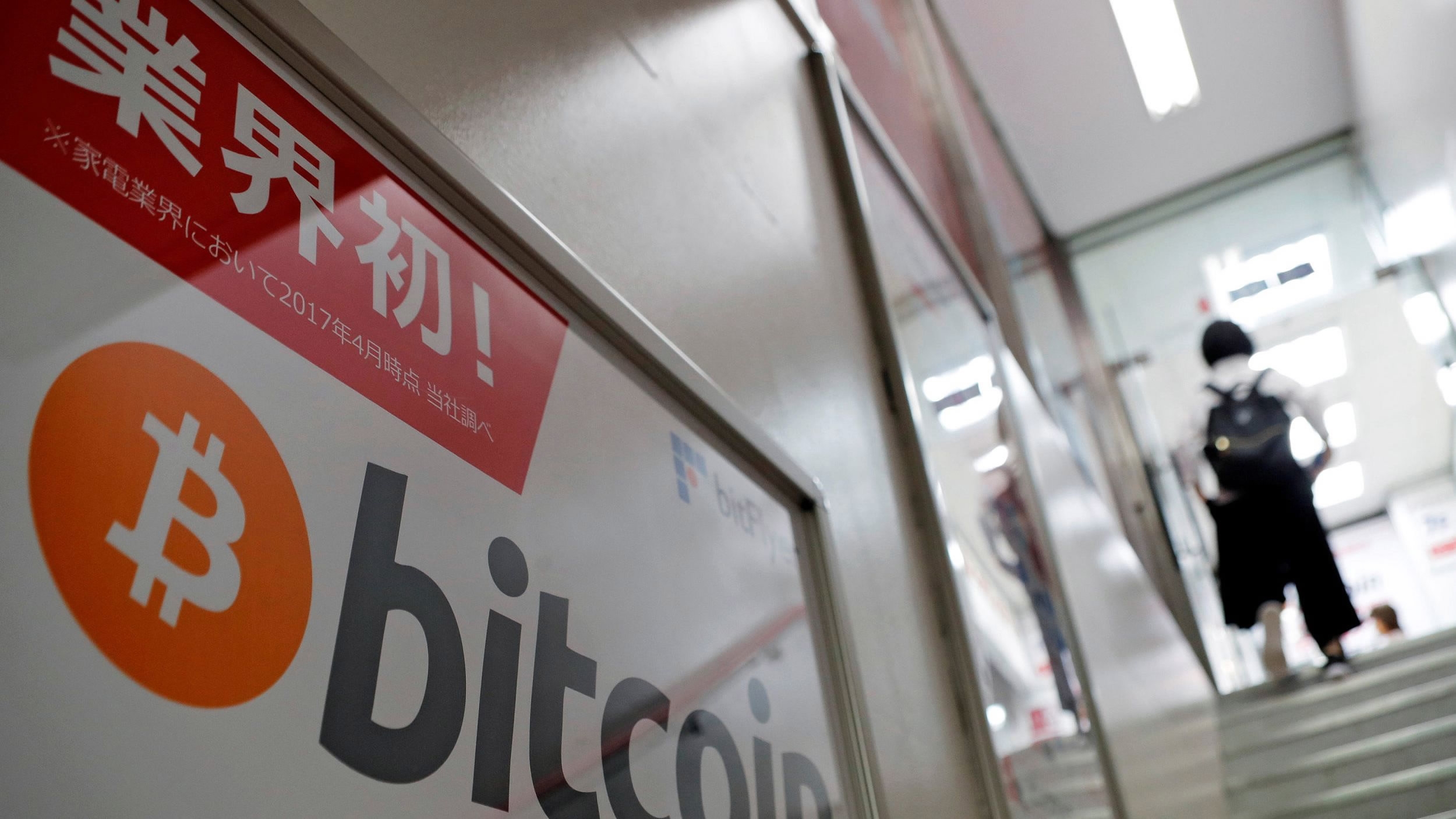
Business
17:53, 31-Oct-2017
Despite potential risks, Japan's embrace of bitcoin is paying off
by Nicholas Moore

One month since Tokyo granted licenses to 11 bitcoin exchanges, Japan has cemented itself as the world’s only major economy to legalize and regulate cryptocurrencies. As other countries err on the side of caution in the booming fintech sector, is Japan risking people’s investments, or placing itself at the forefront of the future of finance?
Since October 1, cryptocurrency exchanges in Japan have been able to obtain licenses from the government’s Financial Services Agency, allowing them to operate in the country in return for following official regulations.
Despite the risk of fraud and financial crime, the last month has seen Japan become by far the world’s biggest market for bitcoin – estimates on October 28 suggested over 68 percent of all trades took place in the country.

VCG Photo
VCG Photo
After decades of stagflation and arguably losing its crown as the high-tech center of the world, Japan’s move to be the global leader in cryptocurrencies could be the key to achieving the Abenomics target of boosting innovation and ushering in a new wave of domestic and foreign investment.
Warm embrace despite potential risks
Japan’s warm embrace of cryptocurrencies comes in contrast to the concern and apprehension of other major economies. China and South Korea have banned initial coin offerings (ICOs), citing a lack of regulation and a high risk of financial crime. Chinese cryptocurrency exchanges were closed in September, causing the price of bitcoin to plummet.
So is Japan naïve to think it alone can tame cryptocurrencies? Not necessarily. In fact, Japan knows the risks all too well, following the collapse of Mt. Gox, once the world’s biggest bitcoin exchange.
Following a series of problems with transactions, Gox closed and filed for bankruptcy in February 2014, and “lost” 850,000 bitcoins – the equivalent at the time of 460 million US dollars’ worth of investor money.

Mark Karpeles, former chief executive officer of Mt. Gox, leaves a news conference in Tokyo, Japan, on Tuesday, July 11, 2017. Karpeles was attending initial trial hearings on charges of embezzlement and inflating corporate financial accounts. /VCG Photo
Mark Karpeles, former chief executive officer of Mt. Gox, leaves a news conference in Tokyo, Japan, on Tuesday, July 11, 2017. Karpeles was attending initial trial hearings on charges of embezzlement and inflating corporate financial accounts. /VCG Photo
The Mt. Gox collapse is still fresh in the memory of Japan’s financial authority, the FSA, which is seeking to ensure that the cryptocurrency sector is as watertight as possible. To receive a license, Japanese coin exchanges must now accept annual government audits, verify customer identities and implement high cybersecurity standards.
The FSA is aware of the risks that bitcoin poses, and continues to warn investors of the dangers of ICOs. On October 27, the FSA released a statement underlining the “high risks” of ICOs, warning investors against any “suspicious solicitation.”
Before the October 1 regulations came into effect, Nikkei reported that the first seven months of 2017 saw 33 cases of cryptocurrency fraud in the country, causing losses of more than half a million US dollars.
One of the first exchanges to get a license was QUOINE, a major international exchange which has promised to work with regulators “towards the healthy development of the cryptocurrency industry within Japan and on a global scale.”
After 11 exchanges were granted licenses on September 29, bitcoin’s incredible rise this year has increased further, hitting 6,120 US dollars on Tuesday amid speculation that it could reach 7,000 US dollars by the end of the year. One month ago, one bitcoin was worth less than 4,400 US dollars.
Grabbing attention overseas
The licensing of the 11 exchanges – with at least 19 other applicants still under consideration – has caught the attention of big players overseas, with bitcoin exchanges and coin startups from across the world approaching Japanese exchanges in the hope of legally setting up shop in the country.
With ICOs and coin exchanges currently banned in China, wallet services and trading platforms are leaving the Middle Kingdom for Japan. According to Bloomberg, OKCoin – previously one of China’s biggest exchanges, Binance.com and Bixin are all looking east.

Bitcoin ATMs in Tokyo, Japan, on Thursday, May 25, 2017.
Bitcoin ATMs in Tokyo, Japan, on Thursday, May 25, 2017.
The number of enquiries to QUOINE has been overwhelming, with CEO Mike Kayamori telling Bloomberg “there’s a lot of Chinese retail people reaching out to us, but we can’t handle it.”
Interest is also coming from even further afield – the UK’s Wirex is working with Japan’s SBI Holdings – a major financial services company which has invested heavily into the coin sector as part of its future strategy.
Wirex and SBI plan to deliver a cryptocurrency payment card, which could be used in the 300,000 stores across Japan that now accept bitcoin.
Initially off the pace
Meanwhile, Japanese banks – with government backing – are working on a national cryptocurrency called the J-Coin, which could enter circulation as soon as 2020.

VCG Photo
VCG Photo
Tokyo was initially off the pace when it came to backing fintech – in 2015 only 65 million US dollars was invested in the sector, compared to 12 billion US dollars in the United States and almost 100 million US dollars by the UK.
However, with the wider financial environment slowly but surely improving – the Bank of Japan’s latest Tankan survey for September showed both manufacturing and business conditions at a 10-year-high – giving bitcoin full backing could well be a very shrewd move, at a time when Tokyo has barely any international competition.

SITEMAP
Copyright © 2018 CGTN. Beijing ICP prepared NO.16065310-3
Copyright © 2018 CGTN. Beijing ICP prepared NO.16065310-3